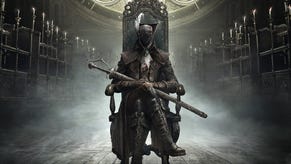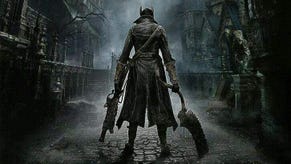Chris Donlan on: Bloodborne, Montauk, and travels beyond genre
Plus a bit about a guy who makes spoons.
There's a book that I... Well, what exactly? Love is the wrong word for how I feel about The Montauk Project, after all. I am suspicious of its politics. I think it's sort of stupid and clumsily put together. Also, I don't believe a word of it. But I am fascinated nonetheless. There is something strangely rich about the kind of global conspiracy madness that The Montauk Project traffics in, something undeniably potent. I don't love it, then, but I am glad I came across it.
Here's the thing about The Montauk Project: it claims to be a true story, and then you read it and realise it can't be. Its basic thrust is that, over in Montauk, on the edge of Long Island, there's an abandoned air force base where some really weird stuff once went down. So far, who cares? This is a set-up you might find in any number of sci fi novels or video games, but with The Montauk Project, the details are so weird and thrilling. You've got a narrator whose memory has been wiped, blinding him to the fact that he's already a key player in the plot he's just started to uncover. You've got the Philadelphia Experiment, Tesla, and John Von Neumann - and this Von Neumann secretly survived into the 1970s. You've also got trips through time to a distant point in the future where humanity is gone and all that remains is a statue of a golden horse, with a mysterious inscription beneath it. We've been sending people through a wormhole to try and get a reading of that inscription, apparently. What can it say? What can it mean?
The question of meaning is key to the book's appeal, I think, and that question of meaning gets a strange charge from the simple trick the writers plays with the framing. Again: this clearly seems to be fiction, but it's dressed up as fact. I know it's rubbish, and yet, rational as I tell myself I am, whenever I re-read it, a tiny, strangely credulous part of me wonders: yes, but what if...? It's the part of me that gets all tangled up with ghosts. I don't believe in ghosts, and yet I also hope very dearly that I'll never have to meet one.
Last time I read The Montauk Project, I thought: games can never do this. And that's weird as well, since you don't really think of games as a form that has much in the way of limitations. Games can build impossible worlds. They can deploy the strangest of rules. They can turn physics inside out and resurrect their own fallen. The one thing they can't easily do, though, is the old found-footage trick beloved of low budget horror movies and, thematically at least, nutball conspiracy books like The Montauk Project. Games are so clearly constructed - they need to be in order to work as software - that they generally can't pretend to be anything other than fiction. Even the recent burgeoning interest in documentary games runs into this problem. Brilliant as it is, the emotional impact of Cart Life can't help but be softened somewhat by your own appreciation of the skill with which it's been put together. (Cart Life's designer, the wonderful Richard Hofmeier, is well aware of this, inevitably. When I spoke to him a while back, he told me: "The lens of games kills whatever's on the other side." You can take that to the bank.)
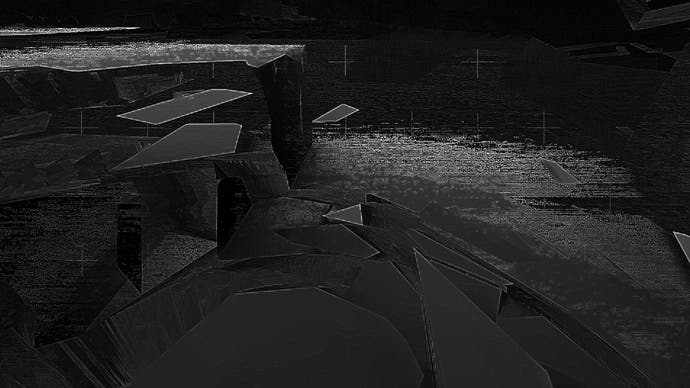
Even so, I still feel I've learned something about the potential of games from The Montauk Project. Most of all, I've learned that, moving inwards from the conspiracy theory's more basic classification problem, genre can be a bit of a curse. This is not news, of course: ask Sid Meier why the early days of game design were so exciting, and he'll tell you that back then, what mattered was a game's topic - topic is a favoured word of his - and that was much more freeing for a designer than thinking in terms of genre. His games prove this point, too. Pirates! Covert Action! Freewheeling, unclassifiable games, unless you think, well: Pirates! Spies! Topics!
I do feel that something special happens once you step back from genre - or even if you just muddle with it a little. One of my great early gaming memories is Wonder Boy 3 on the Master System. I sometimes worry whether any other game will ever have the same impact. My friends and I loved platform games back in the early 1990s, and the first Wonder Boy was definitely a platformer. Wonder Boy 3 - we missed the second one - seemed to be a platformer too, but whenever we played it, something totally weird happened. In platformers, if you dropped off the screen, you died: those were the rules of the genre we cherished. In Wonder Boy 3, if you dropped off the screen, you landed somewhere else: you could reach any point you could see in Wonder Boy 3, as long as you had the right powers. You could reach a bunch of places you couldn't see, too. There was always a screen above the sky, always a screen below the earth's crust. I have never felt such freedom in a game, and it has never been quite so intoxicating. It was a ludic Rosencrantz and Guildenstern - an observation that did not occur to me at the time, and I am glad of that, as it would have meant I was already insufferable.
Genre often kills this sense of freedom stone dead. When I went back to Wonder Boy 3 a couple of years ago, the magic had gone and the Linnaean Taxonomist - I hate this guy - had finished it off. Freedom pegged to a board. Freedom with a pin through its wings. In the cold light of genre, Wonder Boy 3 was simply an RPG that behaved like a platformer. It wasn't breaking any rules, it was just blending two distinct sets of rules and us kids were too thick to notice.
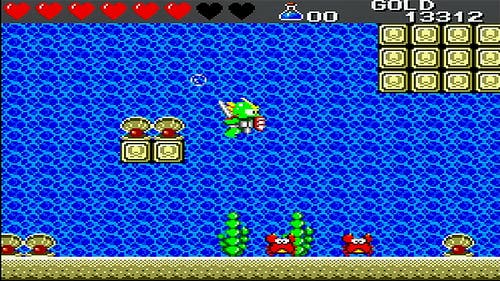
I'll take that, though, because I think the more you muddle genres, the more you eat away at their power to create specific expectations - and, by extension, boredom when those expectations are met. Today, I tell myself I see regular signs that the idea of genre as a way of classifying games is starting to weaken, if only slightly. Take Bloodborne as a recent example. Sure, it's an RPG, and it's an action game, but I don't know if anybody would find those truly satisfactory descriptions, just as I don't find them truly satisfactory for Wonder Boy 3. Miyazaki and his collaborators have made a place. They've built it on existing traditions and also their own traditions, and in the intermingling you get something that cannot really be defined. You can say what's crucial to Bloodborne's construction - its own internal consistencies, its exacting demands on the player (which are often misdiagnosed as a punishing level of difficulty), its wonderfully intricate maps with their loops and oxbows - but even this doesn't get you close to Bloodborne. It belongs to its own genre - and makes the idea of genres look pretty silly at the same time.
Over the last few weeks, I've been pondering what lands you at this point. What creates a Bloodborne, or a Wonder Boy 3, or even a Montauk Project? I suspect, in a weird kind of way, that this ability to kick yourself free of the binds of genre actually builds from years of adherence to genre in the first place. You know: repetition and subtle deviation, a process of slow, tidal rethinking combined with an ability to pounce, nimbly, on a potentially thrilling mistake or mutation.
It puts me in mind of a thing I read recently about a guy who makes spoons. Seriously, every day, he makes a new spoon, and every day the spoon he makes is slightly different. Some are tall and thin, some are short and squat, the last one of his I saw even stood on one end. He's experimenting with forms and materials, and, ultimately, he's unlikely to explode anyone's ideas about, you know, cutlery. But through his variations he's riffing on the creative plasticity of limits - and that's where a lot of very potent art lives.
David Goldfarb is away.
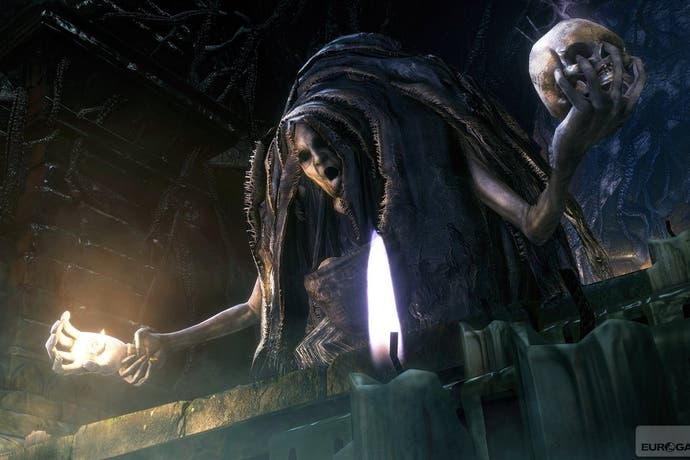


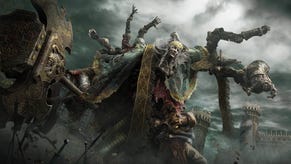

.png?width=291&height=164&fit=crop&quality=80&format=jpg&auto=webp)
